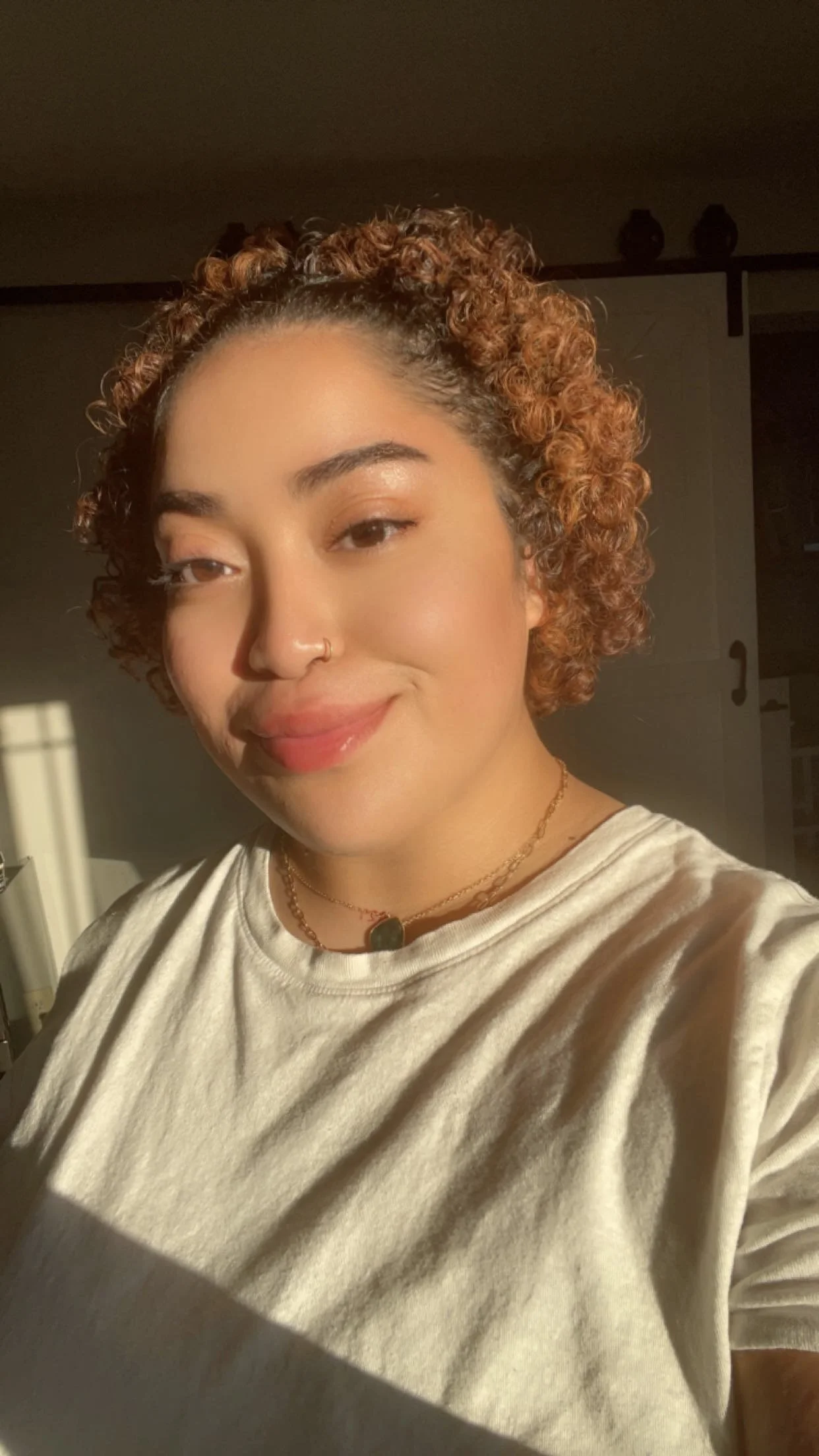
Polyamory Therapist
Chicago, IL| Indianapolis, IN
All relationships have challenges--traditional or nontraditional. You deserve to work with mental health professionals who won't judge your relationship style.
Whether you're navigating polyamorous relationships for the first time or have had many polyamorous relationships, our team of polyamory friendly therapists in Chicago are here to help.
Learn more about our unique approach to polyamory counseling and how we can help you and your partner(s). We are available for telehealth services throughout Illinois and Indiana!
3 Top-Rated Polyamory Therapists in Chicago
Gracie Orellano, MFT
Credentials: Marriage and Family Therapist
Education: Master's Degree from Adler University
Years in practice: 1
Specializations: Conflict, intimacy/sexual concerns, communication issues, genuine trust and connection building, life transitions, parenting
Samantha Jones, LMFT
Credentials: Licensed Marriage and Family Therapist
Education: Master's Degree from Adler University
Years in practice: 3
Specializations: Building healthy communication, establishing boundaries, building trust, infidelity recovery, conflict resolution, intimacy concerns, life stage transitions, grief and loss, exploring identity and sense of self, trauma, managing stress, anxiety, and/or depression, men’s issues
Rachel Miller, PhD, LMFT
Credentials: Licensed Marriage and Family Therapist, AAMFT Approved Supervisor, and Founder of Hold the Vision Therapy, PLLC.
Education: Ph.D. Degree from Adler University. MA Degree from Adler Univerisity
Years in practice: 9
Specializations: Communication issues, intimacy concerns, infidelity, life transitions, trauma and PTSD, conflict resolution and high-conflict scenarios such as domestic violence, separation/divorce, co-parenting/blending families, anger management, and emotional regulation
What are polyamorous relationships?
Polyamory is the practice of having more than one romantic partner at the same time. Also known as ethical non-monogamy, people who practice polyamory have multiple romantic relationships with the consent of their partners.
Many people practice polyamory with the idea that one person cannot be expected to fulfill their needs. With this mindset, monogamous relationships are unrealistic. Having multiple romantic relationships allows people to get their various needs met from more than one person.
There are also many different relationship structures within polyamory. For example, couples may engage in sexual relationships with multiple people or just one other partner. Solo polyamory involves no one primary relationship, but rather multiple independent intimate relationships. Other people have entirely open relationships. These are just a few examples of how folks may practice consensual non-monogamy.
Like any relationship, communication is key in a polyamorous relationship. However, it's especially important when multiple partners are involved. It's essential to communicate about each person's needs, boundaries, and expectations.
As for people in a monogamous relationship, folks in a non-monogamous relationship may benefit from a supportive space to process the challenges that are bound to arise. Polyamory therapy can help people in poly relationships check in with themselves and each other, as well as work toward common relationship goals.
Our team of poly friendly therapists in Chicago are committed to creating an affirmative, inclusive environment to help you get the most out of your polyamorous relationships. We can provide services to anyone in Illinois and Indiana! Ready to dive in? Contact us for a free consultation.
Our approach to polyamory therapy in Chicago
Our team of polyamory friendly therapists use a relational lens to help you explore what's working and what's not. This means examining your primary relationship (if applicable), the relationships within your polycule, and other relationships such as those with family members.
All relationships provide context for the way you connect with others. This includes the therapeutic relationship. We prioritize creating strong therapeutic relationships to form the basis of our work together.
Our poly friendly counselors in Chicago are also interested in the other layers that impact your relationships. We'll explore the systems, institutions, and cultural considerations that impact and influence you.
As with all of the folks we work with, we strive to create a welcoming virtual therapy space for our polyamorous clients. We recognize that each person's experience with polyamory is unique, and we want to hear what it looks like for you. Though we're experts in therapy, you're the experts in your own lives.
In addition to polyamory counseling, we also offer family therapy. This can help people who practice ethical non-monogamy navigate parenting differences, communication challenges, and challenges that arise with unique family structures.
How a Poly Therapist in Chicago Can Help
Each person can experience their own unique benefits within the therapy process. With that being said, there are some common themes for what people tend to get out of polyamorous relationship counseling. Here are just a few.
Identify what's not working to help you find what does
Most people start therapy because they're experiencing some kind of problem. Though no one wants relationship problems, issues give us information. With that being said, therapy isn't only for finding problems. Your therapist can also help you identify the strengths of your relationships and discover ways to build on them.
Have a safe space to cope with external judgment
Many people in polyamorous relationships experience judgment about their lifestyle. Some polyamorous people fear rejection from their own families or negative consequences at the workplace. Therapy provides them with an outlet to process the emotions that come along with the stigma that can (unfairly) be associated with this lifestyle.
Explore social and cultural impacts on relationships
Similarly, people in non-monogamous relationships also face social pressure. Though awareness around non-traditional ways of living has increased, poly individuals are still part of a minority group. Some non monogamous people may even face discrimination. Working with a poly friendly therapist gives you the space to make sense of this.
Improve communication between partners
Communication is an essential piece of practicing ethical non-monogamy. It's imperative to make sure that all parties involved are on the same page about each other's wants, needs, emotions, expectations, and boundaries. Therapy can help people learn new communication skills, as well as provide a dedicated space to talk (and listen).
Get support with boundary navigation
Has there been a breach of trust? Is there confusion about your partner's or polycule's boundaries? Polyamorous couples therapy gives you the opportunity to rebuild trust, clarify boundaries, and create a collaborative plan for how to navigate any future issues that arise. This will help you get the most out of your relationships while making sure that everyone's needs are respected.
Address feelings of jealousy
While not every polyamorous person experiences jealousy, many do. If jealousy arises in your relationships, it's not necessarily a sign that you're doing anything wrong. Counseling can help you befriend this feeling rather than push it away. You may even be able to unlearn jealousy with the help of a poly friendly counselor.
FAQs About Polyamory Couples Therapy
Having questions about the therapy process is to be expected. We've answered a few common questions about polyamory therapy here. However, our therapists are available to speak with you directly about any questions or concerns that are unique to your situation. Reach out to us to schedule a free consultation.
-
It can be tough to find a therapist that you trust. While you'd hope that all therapists are kink and poly friendly, it can be comforting to get that validation before finding out the hard way in therapy.
There are a few different strategies that can help you find a polyamory therapist. Some directories, such as Polyamory-Friendly Professionals Directory, provide contact information for therapists who identify as poly friendly. If you're in individual therapy, you could also ask your personal therapist for recommendations.
Some doctor's offices can provide therapy referrals, or may have a social worker on staff who can point you in the right direction. If you feel comfortable, you can also ask friends or acquaintances for recommendations for poly friendly therapists in Chicago.
Our team at Hold the Vision Therapy is kink and poly friendly. Rest assured, our therapists are committed to making therapy an affirming, inclusive relationship for everyone who is in a polyamorous relationship.
-
Yes, all of our sessions take place via a secure, HIPAA-compliant platform. Many people prefer online therapy for the time, money, and energy it can save. You don't need to schedule extra time for your commute to and from a therapy office (and you don't have to pay for the gas either).
Plus, meeting online means that you can access therapy services from your couch, office, bed, or wherever you feel most comfortable. Therapy often brings up lots of intense emotions, and that can feel easier in a safe, familiar environment.
-
Yes! Therapy is the perfect place to explore whether or not you want to bring in other partners. You don't have to be actively practicing polyamory to start polyamory counseling. We can support people in most any kind of relationship structure, including a currently monogamous relationship.
Therapy provides you and your partner with the opportunity to reflect on your own values and desires--and hear about each other's. It offers a safe space to share your hopes and your fears, all while supported by a professional.
A polyamory counselor won't tell you or your partner what to do. However, having a neutral third party can provide you with additional insight that can add depth to your perspectives about whether or not you want to explore polyamory.
Decided polyamory isn't for you but still looking for support in your relationship? We offer couples therapy services as well. Read more about our approach to couples counseling.
-
There is no right answer when deciding what kind of poly relationship you want. There are all kinds of polyamorous relationships, and the most important part is that all participants are in agreement about the boundaries and expectations of the relationships.
Polyamory in all its forms is consensual non-monogamy. This means that participants have agreed that they won't be exclusive to each other. However, what this looks like can vary greatly from relationship to relationship.
It can help to read about different polyamorous identities or relationship structures so you have an idea of what's possible. However, you might find that existing labels don't resonate with you--and that's okay, too.
Therapy can help you reflect on what kind of relationship style suits you best. In counseling, you can explore your values, needs, and emotions, along with those of your partner(s), in order to find what works for you.
Start the Process of Polyamory Counseling Today
We believe that poly relationships can truly thrive with trust, intention, and communication from all parties involved. There's no need to force yourself into the mold of monogamy if that just doesn't align with what you want. We're here to help you get the most out of your relationships--no matter what that looks like for you.
Deciding to work with a polyamory therapist can feel daunting, exciting, and nerve-wracking all at the same time. It's totally normal to have those feelings, especially if you've never been in therapy or are new to a non-monogamous lifestyle.
Our hope is that therapy becomes a supportive place for you to process those (and other) emotions, work through challenges in your relationships, learn about yourself and your partners, and celebrate your growth.
No matter what relationship style you practice, therapy can be a supportive addition to your life. Our team of poly friendly therapists in Chicago want to help you find the most connection, fulfillment, and joy in your relationships as possible. If you're ready to begin, we are too. Connect with us to set up your initial consultation.








